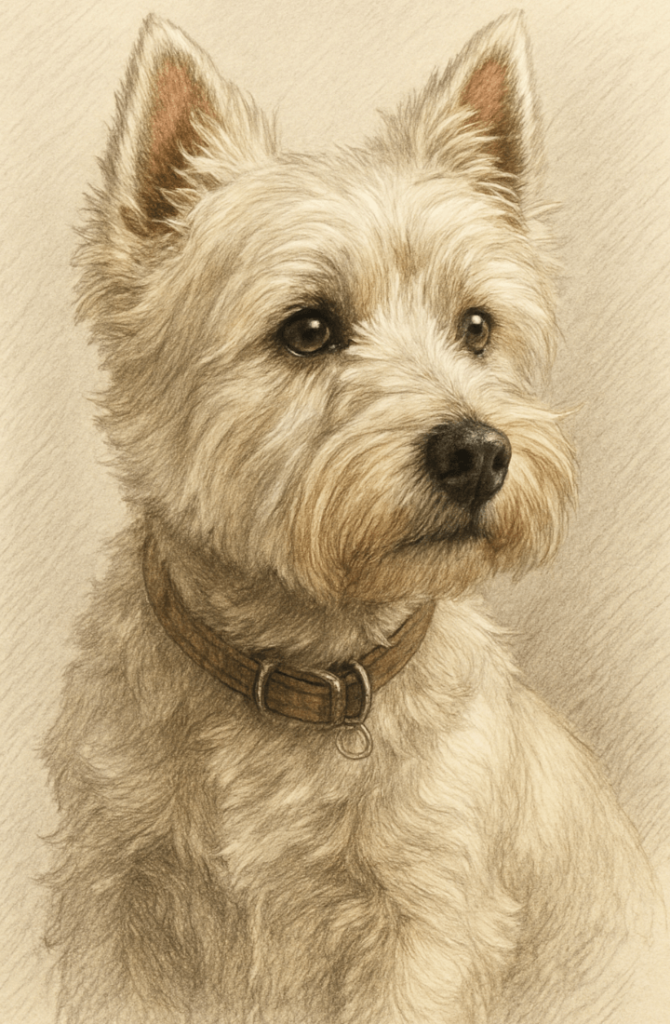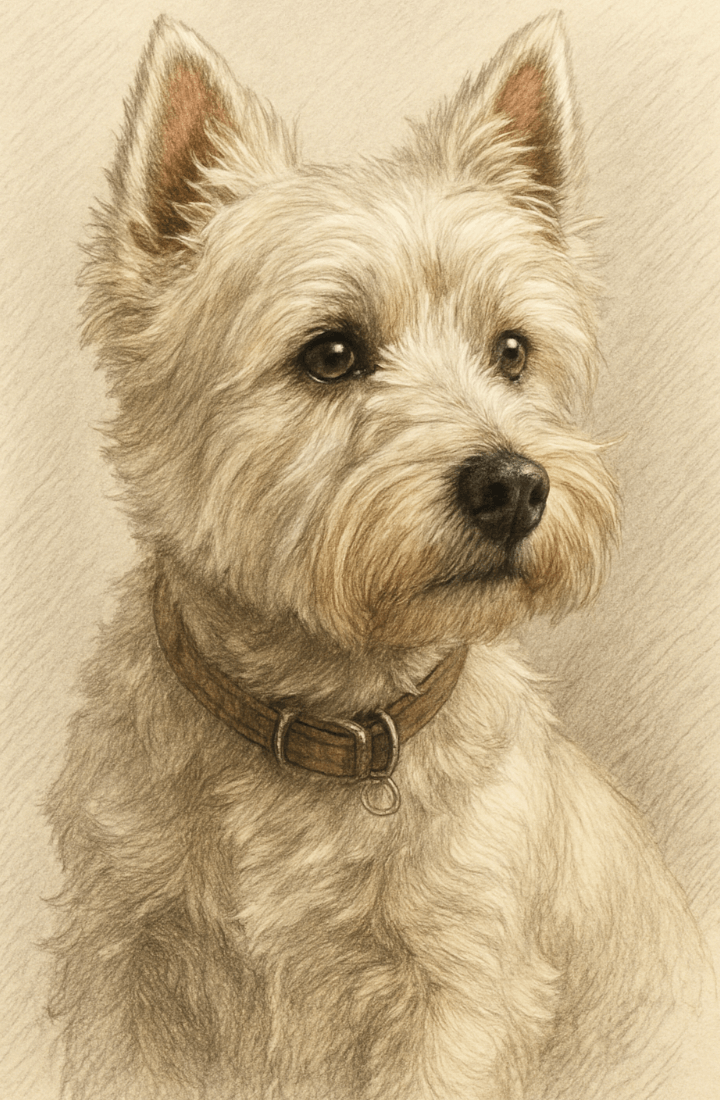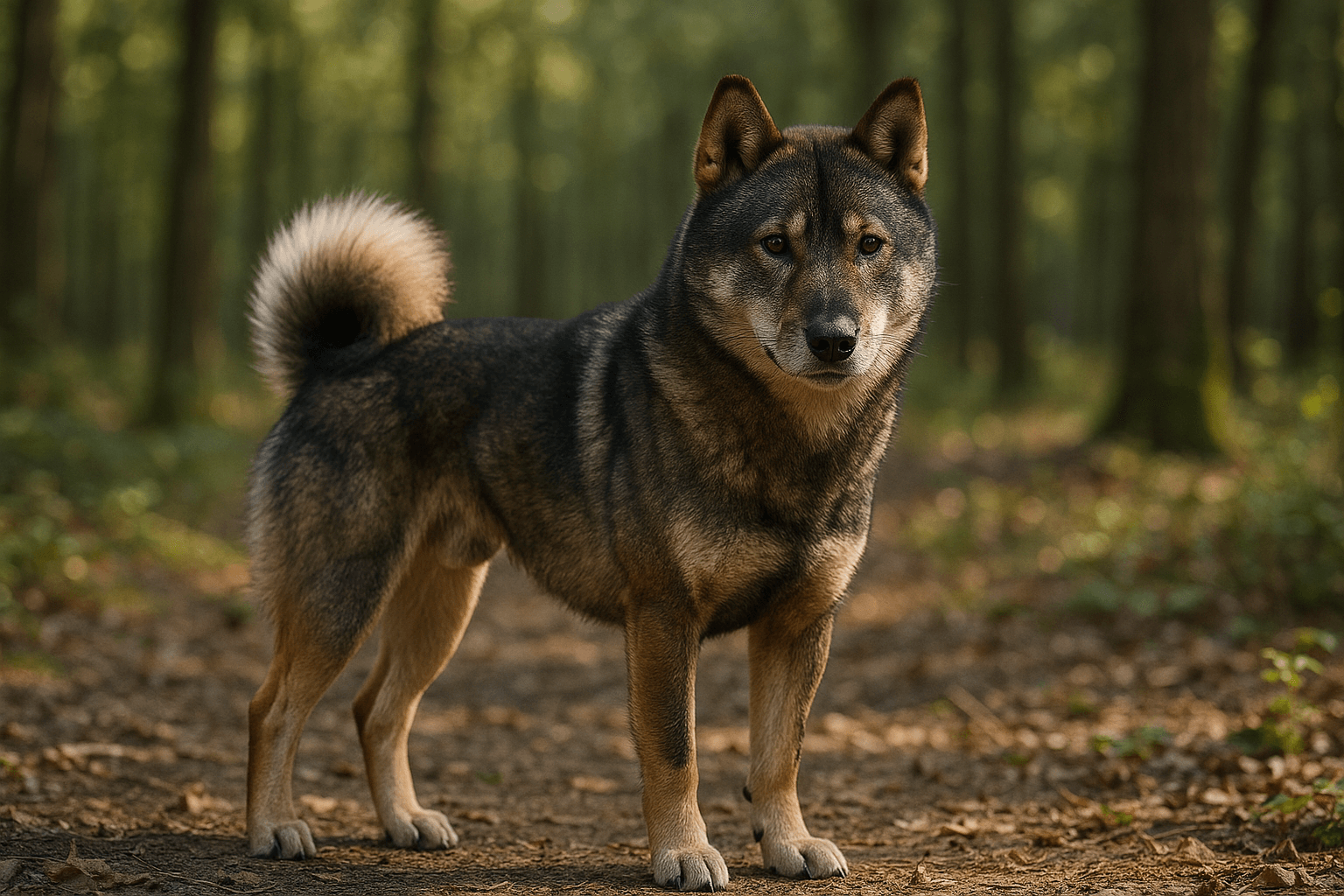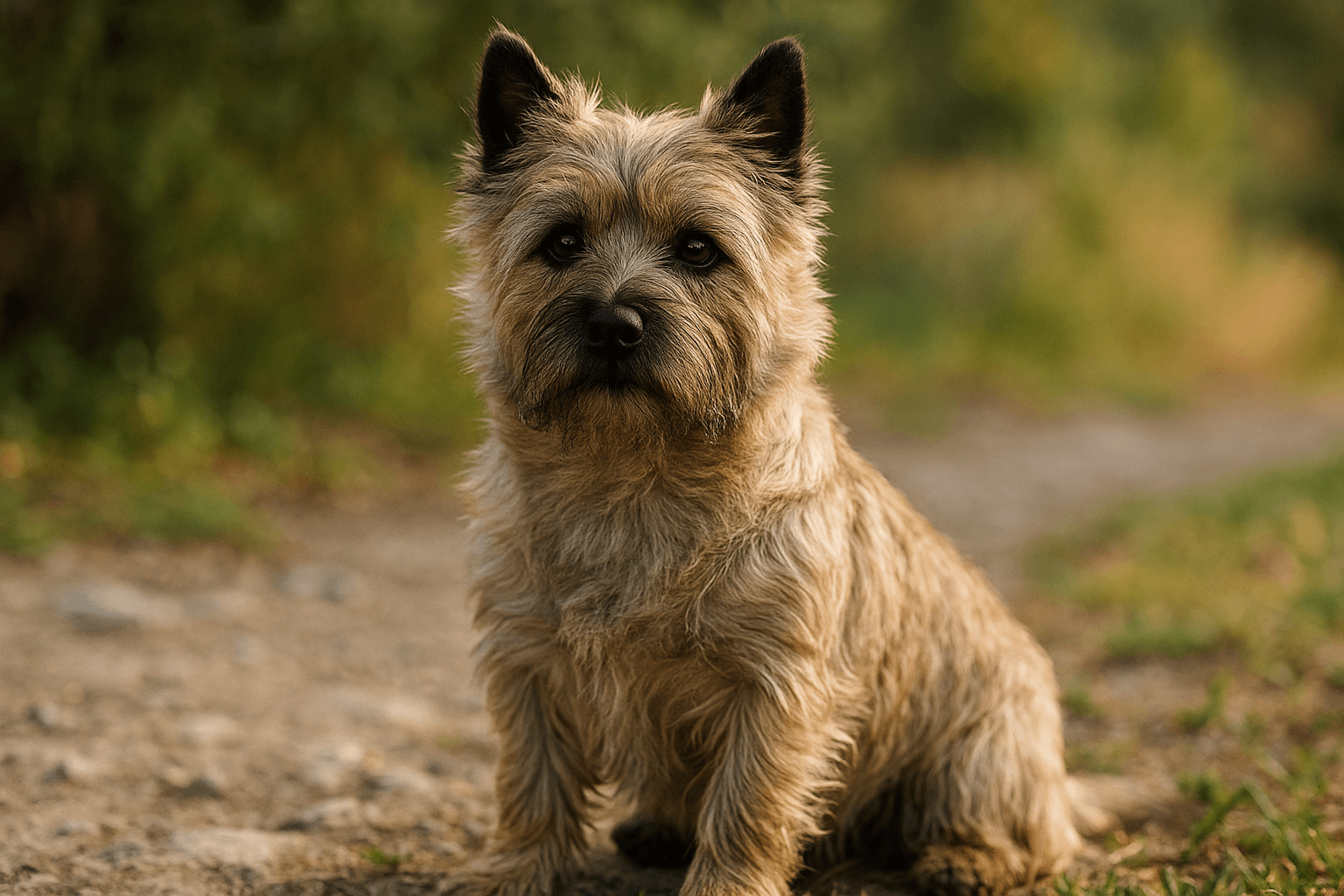Western Terrier Dog: A Spirited and Loyal Companion
The Western Terrier dog is a breed that captures hearts with its lively personality, intelligence, and undeniable charm. Known for their tenacity and boundless energy, these dogs are perfect for active families or individuals who enjoy outdoor adventures. Whether you’re considering adopting a Western Terrier or simply curious about this remarkable breed, understanding their traits, needs, and quirks is essential to building a strong bond. In this blog post, we’ll explore everything from their origins and temperament to care tips and training advice, helping you decide if the Western Terrier is the right fit for your lifestyle.
Expert Insight: The Origins of the West Highland White Terrier
“The West Highland White Terrier, affectionately the ‘Westie,’ originated in 1700s Scotland, bred for vermin control on estates like Poltalloch. Laird Malcolm preferred white dogs to avoid fatal fox misidentifications, leading to the breed’s signature coat. Officially named in 1908 and recognized by major kennel clubs soon after.”
— Dr. Duncan Houston BVSc
Key Characteristics of the Western Terrier Dog
The Western Terrier is a unique blend of athleticism, intelligence, and loyalty, making them stand out among other breeds. Here are some defining traits that make this dog so special.
Energetic and Playful Nature:
Western Terriers thrive on physical activity and love engaging in games like fetch or agility exercises. Their high energy levels make them ideal companions for active owners.Intelligent and Quick Learners:
These dogs are highly intelligent and excel in obedience training. They respond well to positive reinforcement techniques and enjoy mental challenges.Loyal and Protective Instincts:
Western Terriers form deep bonds with their families and are naturally protective, often acting as alert watchdogs without being overly aggressive.Compact and Sturdy Build:
Despite their small to medium size, they have a muscular frame that allows them to tackle demanding tasks with ease.Adaptable to Various Environments:
Whether living in an apartment or a house with a yard, Western Terriers adapt well as long as their exercise needs are met.
These characteristics highlight why the Western Terrier is such a versatile and beloved breed, capable of fitting into diverse lifestyles while maintaining their spirited charm.

How to Care for Your Western Terrier Dog
Proper care is essential to ensure your Western Terrier remains happy, healthy, and well-behaved. From grooming routines to dietary needs, here’s what you should know.
Regular Exercise Routine:
Aim for at least 60 minutes of daily exercise, including walks, runs, or interactive play sessions, to keep your Western Terrier physically and mentally stimulated.Balanced Diet and Portion Control:
Feed your dog high-quality dog food tailored to their age, size, and activity level. Avoid overfeeding to prevent obesity, which can lead to health issues.Consistent Grooming Habits:
Their short-to-medium coat requires weekly brushing to remove loose hair and reduce shedding. Regular baths and nail trims are also important.Dental Hygiene Practices:
Brush your Western Terrier’s teeth several times a week to prevent tartar buildup and maintain oral health.Routine Veterinary Checkups:
Schedule annual vet visits to monitor your dog’s overall health and stay up-to-date on vaccinations and parasite prevention.
By prioritizing these aspects of care, you can ensure your Western Terrier enjoys a long, vibrant life by your side.
Check this guide 👉Terrier Breeds: Best 7 Expert Tips!
Check this guide 👉Scottish Terrier Price: Best 7 Expert Tips!
Check this guide 👉Airedale Terrier: Best 7 Expert Tips!
Physical Traits of Western Terriers | Temperament Highlights |
|---|---|
Compact and sturdy build | Energetic and playful |
Short-to-medium coat | Intelligent and trainable |
Muscular legs for agility | Loyal and protective |
Expressive eyes | Adaptable to various environments |
Average height: 15-18 inches | Alert but not overly aggressive |
Training Tips for Your Western Terrier Dog
Training a Western Terrier requires patience, consistency, and creativity due to their intelligent yet independent nature. Follow these tips to set your pup up for success.
Start Early with Socialization:
Introduce your Western Terrier to new people, animals, and environments during puppyhood to foster confidence and reduce fear-based behaviors.Use Positive Reinforcement:
Reward good behavior with treats, praise, or toys to encourage repetition. Avoid harsh punishments, which can damage trust.Incorporate Mental Challenges:
Puzzle toys and obedience drills provide mental stimulation, preventing boredom and destructive habits.Keep Sessions Short and Fun:
Limit training sessions to 10-15 minutes to maintain focus and enthusiasm. End each session on a positive note.Be Consistent with Commands:
Use clear, consistent commands and gestures to avoid confusion. Repetition helps reinforce learning over time.
With dedication and positivity, training your Western Terrier will strengthen your bond while shaping them into a well-behaved companion.
Common Health Concerns in Western Terrier Dogs
While generally robust, Western Terriers may be prone to certain health issues that owners should monitor closely. Awareness and proactive care can help mitigate risks.
Hip Dysplasia:
This genetic condition affects joint mobility. Maintain a healthy weight and provide low-impact exercises to reduce strain on joints.Allergies and Skin Conditions:
Some Western Terriers develop allergies to food, pollen, or flea bites. Watch for signs like itching, redness, or hair loss.Dental Issues:
Small breeds often face dental problems. Regular brushing and professional cleanings help prevent gum disease and tooth decay.Patellar Luxation:
A common issue where the kneecap slips out of place. Consult your vet if you notice limping or difficulty walking.Ear Infections:
Their floppy ears can trap moisture, increasing infection risk. Clean ears regularly and check for unusual odors or discharge.
Staying vigilant about these potential health concerns ensures your Western Terrier stays healthy and active throughout their life.
Fun Activities to Do With Your Western Terrier
Engaging in fun activities strengthens your bond with your Western Terrier while keeping them entertained and exercised. Try these ideas to create lasting memories together.
Agility Training Courses:
Set up tunnels, jumps, and weave poles in your backyard to challenge their athleticism and problem-solving skills.Fetch Games:
Use balls, frisbees, or tug ropes to play fetch—a favorite pastime for most Western Terriers.Hiking Adventures:
Bring your dog along on hikes to explore nature and burn off excess energy in a stimulating environment.Interactive Puzzle Toys:
Invest in puzzle feeders or treat-dispensing toys to keep their minds sharp during downtime.Obedience Competitions:
Train for local dog shows or competitions to showcase their talent and deepen your connection through teamwork.
These activities not only entertain your Western Terrier but also enhance their physical and mental well-being.
Signs Your Western Terrier Is Happy and Healthy
A happy and healthy Western Terrier exhibits specific behaviors and physical signs that indicate they’re thriving. Look out for these indicators to gauge their well-being.
Bright Eyes and Alert Expression:
Clear, shiny eyes and an attentive demeanor suggest your dog feels content and engaged.Shiny Coat and Healthy Skin:
A glossy coat free of flakes or bald patches reflects proper nutrition and grooming habits.Regular Appetite and Digestion:
Consistent eating patterns and normal bowel movements signal good digestive health.Playful Energy Levels:
A joyful disposition and eagerness to play demonstrate emotional and physical wellness.Calm Sleeping Patterns:
Restful sleep cycles without excessive restlessness indicate relaxation and comfort.
Recognizing these signs helps you ensure your Western Terrier is living their best life.
Ways to Strengthen Your Bond With Your Western Terrier
Building a strong bond with your Western Terrier enhances their happiness and reinforces your role as their trusted companion. These strategies foster trust and affection.
Spend Quality Time Together:
Dedicate uninterrupted moments to cuddle, play, or simply relax side by side.Practice Training Daily:
Incorporate short training sessions into your routine to communicate effectively and build mutual respect.Go on Adventures:
Explore new places together, whether it’s a park, beach, or hiking trail, to create shared experiences.Offer Praise and Affection:
Regularly shower your dog with verbal praise, petting, and treats to show your appreciation.Respect Their Individuality:
Understand and embrace your dog’s unique personality, preferences, and quirks to deepen your connection.
By nurturing your relationship in these ways, you’ll cultivate a lifelong friendship filled with love and loyalty.
Frequently Asked Questions About Western Terrier Dogs
Are Western Terriers good with children?
Yes, they are affectionate and playful, making them excellent companions for kids when properly socialized.
Do Western Terriers bark a lot?
While not excessive barkers, they may alert you to strangers or unusual sounds due to their protective instincts.
How much grooming do Western Terriers need?
Weekly brushing and occasional baths suffice for their coat, though more frequent grooming may be needed during shedding seasons.
Can Western Terriers live in apartments?
Absolutely! As long as they receive enough exercise, they adapt well to apartment living.
Can Western Terriers live in apartments?
With proper care, they typically live 12-15 years, showcasing their resilience and vitality.
Why Choose a Western Terrier Dog?
The Western Terrier dog embodies the perfect mix of energy, intelligence, and loyalty, making them an exceptional addition to any household. Whether you’re seeking a loyal companion, a playful workout partner, or a clever pupil eager to learn, this breed delivers it all. By understanding their unique needs and investing time in their care and training, you’ll unlock the full potential of your relationship with a Western Terrier. If you’re ready for a dynamic and rewarding partnership, this spirited breed might just be your ideal match.
Spleen Cancer in Cats: Best 7 Expert Tips! – Expert insights on symptoms, care, treatment & quality of life for feline spleen cancer.
Dog Mastitis Treatment: Best 7 Expert Tips! – Safe, vet-approved care for nursing moms & prevention strategies.
The Shikoku Ken Dog: Best 7 Expert Tips! – Discover expert care, training & health advice for this rare, loyal Japanese mountain breed.
The Cairn Terrier Dog Breed: Best 7 Expert Tips! – Discover care, training & health advice for this spirited, loyal Scottish terrier.





